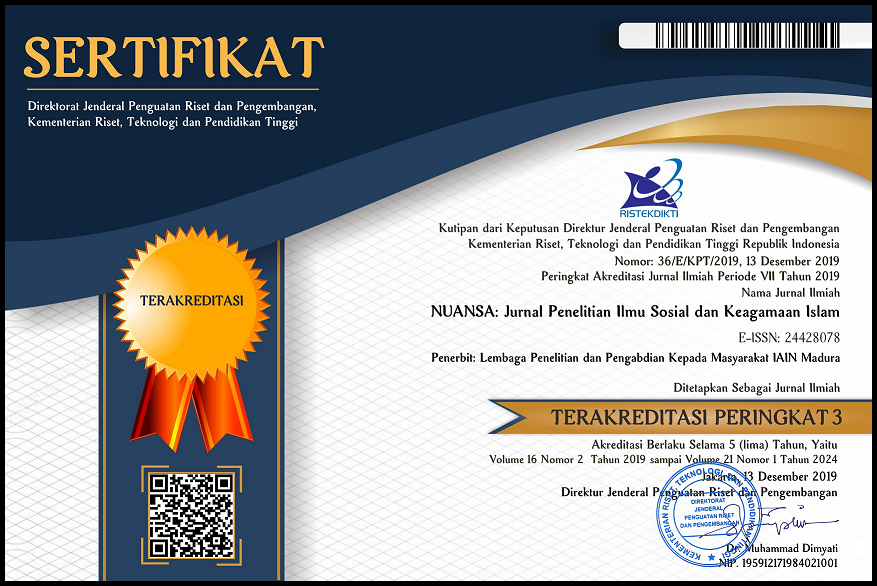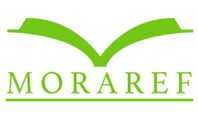THE STATE, DEVELOPMENT, DEMOCRACY, AND PEACE IN UNRECOGNISED SOMALILAND
 Abstract views: 214
,
Abstract views: 214
,
 PDF downloads: 187
PDF downloads: 187
Abstract
This study examines the national state-building experiment in Somaliland, an unrecognised state in the Horn of Africa, in the three decades after its independence from Somalia in 1991. There are three dimensions of national state-building in Somaliland discussed in this study, namely economic growth, political development (with a particular emphasis on democratisation), and peacebuilding. This study uses a qualitative-descriptive methodology, utilising previous studies and mass media publications to assess the role of the Somalilander state vis-à-vis those three dimensions. This study discovered that the Somalilander state and its government can be considered as a strong state. Furthermore, the Somalilander state has an instrumental role in encouraging economic growth by way of cooperation with national and foreign business interests, encouraging political development through a highly successful, novel method of democratisation and political institutionalisation through deliberation and consensus in cooperation with traditional and religious institutions present in the country’s territory, and encourages peacebuilding within the country’s territory by neutralising threats of terrorism and horizontal interclan conflict through inclusive state governance. This study also finds that the Somalilander government’s role is central in uniting the various clans and armed militia groups of the country into unified state institutions, in a way that is absent in southern Somalia. Therefore, this study finds that the “Somalilander Way” as practiced by the Somalilander government for the past three decades is a good example for other states in the world coming out from conflicts.
Downloads
References
Bradbury, Mark, Adan Yusuf Abokor, and Haroon Ahmed Yusuf. “Somaliland: Choosing Politics over Violence.” Review of African Political Economy 30 no. 97 (2003): 455–478.
Brons, Maria. Society, Security, Sovereignty and the State in Somalia: From Statelessness to Statelessness?. International Books, 2001.
Caelli, Kate, Lynne Ray, and Judy Mill. “Clear as Mud’: Toward Greater Clarity in Generic Qualitative Research.” International Journal of Qualitative Methods 2 no. 2 (2003): 1–13.
Djounguep, Hippolyte Eric, 2022. “Al-Shabaab in Somalia: A jihadist group goes from local to global, TRENDS Research and Advisory”. [Online]. In https://trendsresearch.org/insight/al-shabaab-in-somalia-a-jihadist-group-goes-from-local-to-global/ [accessed 12 October 2024].
Egger, Clara. “Partners for Peace, Peaceful Partners? On the Relations between UN, Regional and Non-State Peacebuilders in Somalia.” Peacebuilding 4 no. 1 (2015): 11–27.
Fukuyama, Francis. The Origins of Political Order: From Prehuman Times to the French Revolution. Farrar, Straus and Giroux, 2011.
Freedom House, 2023. “Somaliland: Freedom in the World 2023 Country Report”. [Online]. In https://freedomhouse.org/country/somaliland/freedom-world/2023 [accessed 12 October 2024].
Government of Somaliland, 2018. “Embassies”. [Online]. In https://somalilandgov.com/country-profile/embasies/ [accessed 12 October 2024].
Government of Somaliland, 2024. “Achievements”. [Online]. In https://recognition.somalilandgov.com/achievements/ [accessed 12 October 2024].
Ingiriis, Mohamed Haji. “Being and Becoming a State: The Statebuilding and Peacebuilding Conversations in Southern Somalia and Somaliland.” Journal of Contemporary African Studies 39 no. 1 (2020): 1–33.
Kaariye, Barkhad “Democracy and State Formation Nexus: Experiences in Somaliland.” Democracy and Security 17 no. 2 (2021): 210–223.
Keating, Joshua, 2018. “When is a nation not a nation? Somaliland’s dream of independence”, The Guardian [Online]. In https://www.theguardian.com/news/2018/jul/20/when-is-a-nation-not-a-nation-somalilands-dream-of-independence [accessed 29 April 2024].
Kosienkowski, Marcin and Katerina Rudincová. “Client de Facto States and Quasi-Patrons: Insights from the Relationship between Somaliland and Ethiopia.” Ethnopolitics 23 no. 2 (2022): 1–21.
Musa, Ahmed and Cindy Horst. “State Formation and Economic Development in Post-War Somaliland: The Impact of the Private Sector in an Unrecognised State.” Conflict, Security & Development 19 no. 1 (2019): 35–53.
Neergaard, Mette Asbjoern, Frede Olesen, Rikke Sand Andersen, and Jens Sondergaard. “Qualitative Description – The Poor Cousin of Health Research?” BMC Medical Research Methodology 9 no. 52 (2009): 1–5.
Richards, Rebecca. “Fragility Within Stability: The State, the Clan and Political Resilience in Somaliland.” Third World Quarterly 41 no. 6 (2020): 1067–1083.
Sandelowski, Margarete. “Whatever Happened to Qualitative Description?” Research in Nursing & Health 23 no. 4 (2020): 334–340.
Stadler, Alf. “Strong States Make for a Strong Civil Society.” Theoria: A Journal of Social and Political Theory 79 (1992): 29–32.
Sullivan-Bolyai, Susan, Carol Bova, and Doreen Harper. “Developing and refining interventions in persons with health disparities: The use of qualitative description.” Nursing Outlook 53 no. 3 (2005), 127–133.
Tsygankov, Andrei. “A Strong State: Theory and Practice in the 21st Century.” Valdai Papers 15 (2015): 1–8.
Copyright (c) 2024 NUANSA: Jurnal Penelitian Ilmu Sosial dan Keagamaan Islam

This work is licensed under a Creative Commons Attribution-NonCommercial 4.0 International License.
The journal operates an Open Access policy under a Creative Commons Attribution-NonCommercial 4.0 International License (CC-BY-NC) 
Authors who publish with this journal agree to the following terms:
- Authors retain copyright and grant the journal right of first publication with the work simultaneously licensed under a Creative Commons Attribution License that allows others to share the work with an acknowledgement of the work's authorship and initial publication in this journal.
- Authors are able to enter into separate, additional contractual arrangements for the non-exclusive distribution of the journal's published version of the work (e.g., post it to an institutional repository or publish it in a book), with an acknowledgement of its initial publication in this journal.
- Authors are permitted and encouraged to post their work online (e.g., in institutional repositories or on their website) prior to and during the submission process, as it can lead to productive exchanges, as well as earlier and greater citation of published work.





















